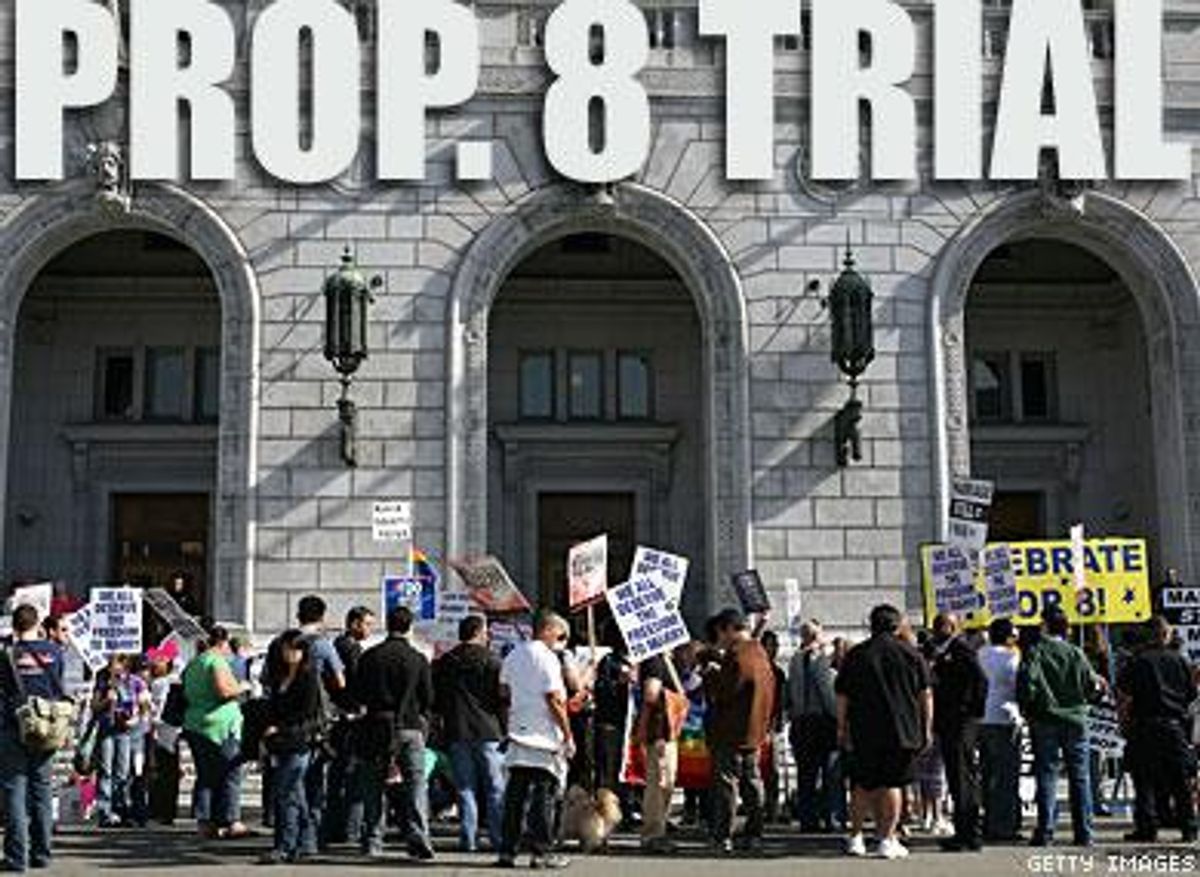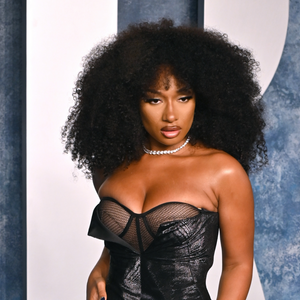
CONTACTStaffCAREER OPPORTUNITIESADVERTISE WITH USPRIVACY POLICYPRIVACY PREFERENCESTERMS OF USELEGAL NOTICE
© 2024 Pride Publishing Inc.
All Rights reserved
All Rights reserved
By continuing to use our site, you agree to our Private Policy and Terms of Use.
Video recordings of the Proposition 8 trial should be unsealed and made available to the public, a federal judge handling procedural matters in the case ruled Monday morning.
U.S. district chief judge James Ware issued his 14-page ruling on the matter three weeks after attorneys representing the four plaintiffs in the case, as well as a coalition of media organizations, argued that the recordings should be released to the public. The judge issued a stay on his ruling effective until September 30 to allow for appeal of the order, however.
American Foundation for Equal Rights cofounder Chad Griffin, who briefly spoke to The Advocate during rehearsals for the Monday night premiere of Dustin Lance Black's "8" at New York's Eugene O'Neill Theatre, said, "This is a significant victory for the American people. The public will finally soon get to see what happens in the Perry case. This is something that both sides of the case should celebrate."
That's unlikely to happen: Attorneys for Prop. 8 proponents, who have appealed Judge Vaughn Walker's 2010 decision striking down the ballot measure as unconstitutional, have fought to keep the video recordings sealed. They argue that the tapes were to be used by Judge Walker, now retired, "in preparing the findings of fact and conclusions of law" and were not intended for public dissemination.
Citing that confidence in the judicial system requires "public access to trials and public access to the record of judicial proceedings," Judge Ware concluded that "no compelling reasons exist for continued sealing of the digital recording of the trial."
The court record indicates that Judge Walker did not limit the recordings to chambers use only, Ware ruled. Furthermore, unsealing the videos would not interfere with a previous Supreme Court injunction prohibiting live broadcast of the trial, he wrote.
"Although the Court acknowledges that significant public policy concerns are implicated in allowing cameras in federal courtrooms, nothing in this Order speaks to the broader question of whether district court trials should be recorded or broadcast," Ware wrote. "Rather, this Order solely addresses the narrow question of whether the digital recording in this case, which is in the record, should now be unsealed pursuant to the common law right of access to court records. The Court answers that question in the affirmative, without addressing any of the larger questions that may potentially arise from circumstances similar to this case."
A PDF of Ware's ruling is available here.
Want more breaking equality news & trending entertainment stories?
Check out our NEW 24/7 streaming service: the Advocate Channel!
Download the Advocate Channel App for your mobile phone and your favorite streaming device!
From our Sponsors
Most Popular
Here Are Our 2024 Election Predictions. Will They Come True?
November 07 2023 1:46 PM
Meet all 37 of the queer women in this season's WNBA
April 17 2024 11:24 AM
17 Celebs Who Are Out & Proud of Their Trans & Nonbinary Kids
November 30 2023 10:41 AM
Here Are the 15 Most LGBTQ-Friendly Cities in the U.S.
November 01 2023 5:09 PM
Which State Is the Queerest? These Are the States With the Most LGBTQ+ People
December 11 2023 10:00 AM
These 27 Senate Hearing Room Gay Sex Jokes Are Truly Exquisite
December 17 2023 3:33 PM
10 Cheeky and Homoerotic Photos From Bob Mizer's Nude Films
November 18 2023 10:05 PM
42 Flaming Hot Photos From 2024's Australian Firefighters Calendar
November 10 2023 6:08 PM
These Are the 5 States With the Smallest Percentage of LGBTQ+ People
December 13 2023 9:15 AM
Here are the 15 gayest travel destinations in the world: report
March 26 2024 9:23 AM
Watch Now: Advocate Channel
Trending Stories & News
For more news and videos on advocatechannel.com, click here.
Trending Stories & News
For more news and videos on advocatechannel.com, click here.
Latest Stories
Biden will hammer Trump over abortion bans in Florida speech
April 23 2024 5:00 AM
Tristan Snell, who brought down Trump University, sees conviction in hush money case
April 22 2024 7:36 PM
Joe Biden admin marks Earth Day with major environmental initiatives
April 22 2024 4:18 PM
Texas Gov. Greg Abbott: 'We want to end' trans and gender nonconforming teachers
April 22 2024 4:13 PM
Nonbinary 17-year-old killed two years after being reported missing
April 22 2024 3:46 PM

Pride
Yahoo FeedIndulge in luxury and sensuality with The Pride Store’s Taurus gift guide
April 22 2024 11:46 AM
The gay man leading the Earth Day Initiative offers hope for the future
April 22 2024 9:00 AM
Pattie Gonia takes drag and fierceness to Capitol Hill to voice environmental concerns
April 22 2024 8:23 AM
Jodie Foster leaves her mark in cement at L.A.'s Chinese Theatre
April 22 2024 7:55 AM
Trending stories
Most Recent
Recommended Stories for You


















































































